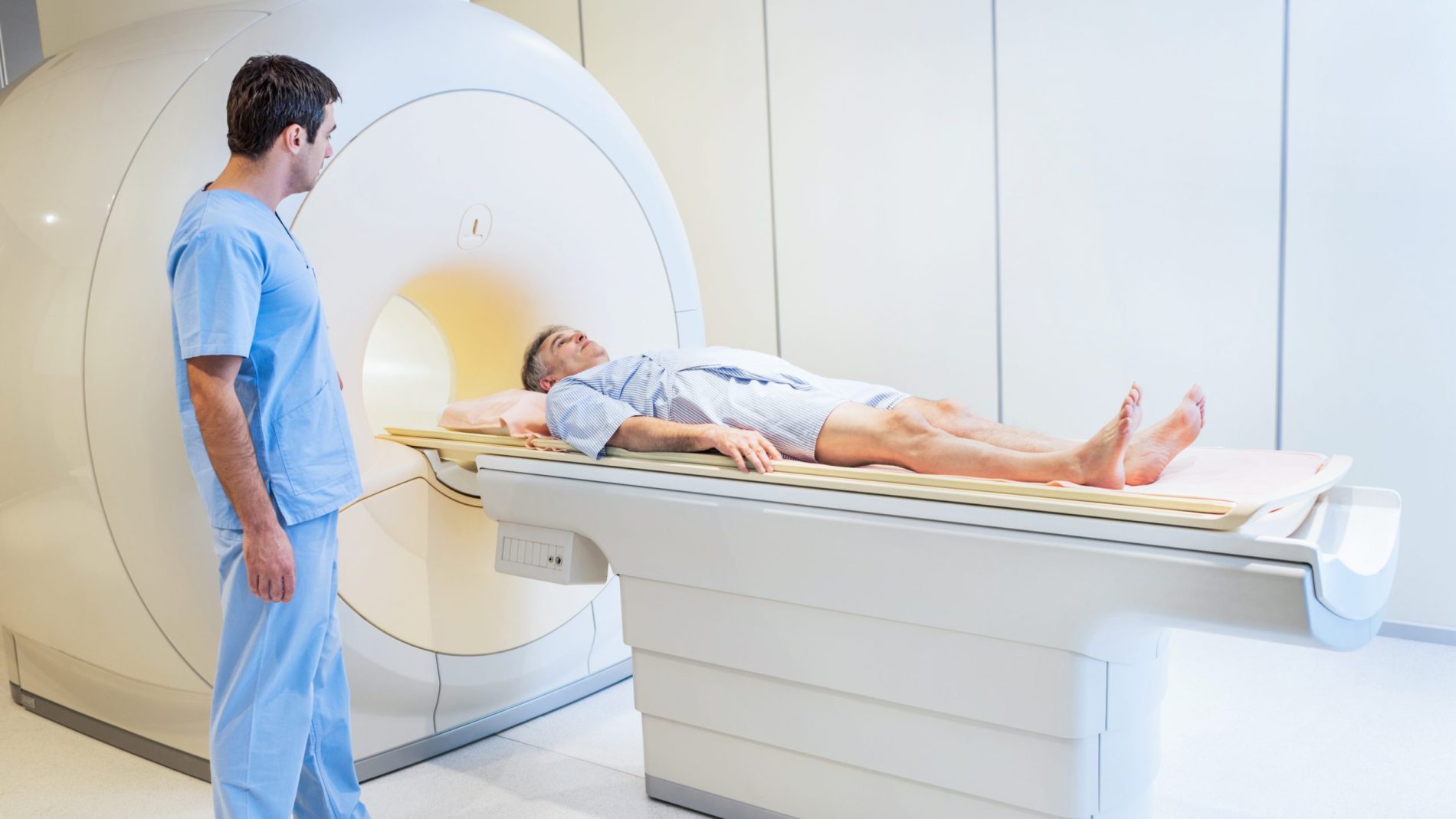Medical imaging procedures, such as computed tomography scans (CT), are used to identify and diagnose many different cancers and conditions. Conway Hematology Oncology continues to invest in next-generation technologies that provide precise views of internal organs, bones, soft tissues and blood vessels with immense clarity and detail. These scans and other imaging tests are performed and reviewed on-site.
Frequently Asked Questions
The following information will help you understand and prepare for your exam. Our staff and your physician will also be able to answer additional questions you may have.
What is a CT scan?
A Computed Tomography (CT) scan uses a combination of x-rays and computers to give the radiologist an advanced but non-invasive way to view your body’s internal anatomy. A CT scan rapidly acquires 2-dimensional pictures of your anatomy which are then reconstructed by a computer into 3-dimensional images for in-depth clinical evaluation.
Why do I need this exam?
Your exam results may have a major impact on your physician’s diagnosis of a potential health problem and how a treatment plan is developed and managed in the event that a health issue is discovered. These tests not only help your physician diagnose a problem, they also help establish the extent and severity of that disease. Additionally, scan results help predict the likely outcome of various treatment alternatives, identify the best approach for treatment and help monitor your progress. That way, if you’re not responding as well as expected, you can be switched to a more effective treatment as soon as possible.
How should I prepare for my exam?
Please follow the instructions below to ensure the most accurate results. If you are a diabetic, please call our office at (501) 327-2995 Ext. 200 for special instructions.
CT (CAT scan) Preparation
Abdomen/Pelvis:
- Nothing to eat or drink except water after midnight or 8 hours prior to exam.
- Please drink as much water as you can the day of your scan just prior to your appointment.
- In most cases, oral contrast is not required. In the event your exam does require oral contrast, however, you may contact us to pick-up your oral contrast prior to your appointment. Oral contrast must be taken over a 1-2-hour period prior to your exam. Picking up your oral contrast ahead of time allows your exam to be completed faster and minimizes long wait times.
All Other Contrast CT’s:
- Nothing to eat or drink except water 4 hours prior to exam.
What should I expect when I arrive?
We will review your history and past exams. Depending on your procedure you may be asked to drink an oral contrast to help visualize your digestive tract. If a CT scan was requested by your physician, we will also determine if your kidneys are functioning normally by measuring certain chemicals in your blood sample.
During this time, you will be asked to relax in an easy chair. If your physician has requested that you have a contrast CT then we will also place a small IV catheter in a vein. This will allow the technologist to administer the IV contrast during your CT scan. The IV catheter is immediately removed following the procedure.
What will the scan be like?
You will lie on a comfortable but narrow table on a scanner. The table will move slowly through the short tube-shaped scanner as it acquires the images. You will be asked to lie very still during the scan because movement can interfere with the results. During your scan you might hear a slight humming sound, but you will not feel anything unusual. You may feel the table move as it acquires images it needs from various positions.
If a CT scan is performed with IV contrast, you may feel a slight warmth throughout your body as well as a metallic taste. This is normal and should not alarm you. The technologist will monitor you during the exam. More specific details of your scan will be explained fully by the technologist upon your arrival.
How long will all this take?
A typical CT scan can take from 10-20 minutes, depending on the procedure performed. However, if oral contrast is administered, you will be asked to relax and wait an additional 30 minutes for the contrast to fully distribute though your digestive system. The exam procedure can vary depending on what we are looking for and what we discover along the way.
What happens after my exam?
You may leave us as soon as your exam is complete. Unless you have received special instructions, you will be able to eat and drink immediately – drinking lots of fluids after your exam will help remove any of the radioactive glucose and/or contrast material that may still be in your system. In the meantime, we’ll begin preparing results for review by our radiologist who will then pass along these results to your physician. Your physician will then explain the results of the test to you.
Safety of CT exams
Be assured that CT exams are safe and effective diagnostic procedures. Although it involves exposure to diagnostic level radiation, your physician has determined that the risk of this exposure outweighs the risk of not having the scans and thus the information the scans can provide.
Rarely, patients may experience an allergic reaction to the IV contrast used for CT scans. If you have experienced any previous reactions to IV contrast, iodine, or seafood please notify our center prior to your appointment so we can discuss alternative preparation options with you and your physician.
